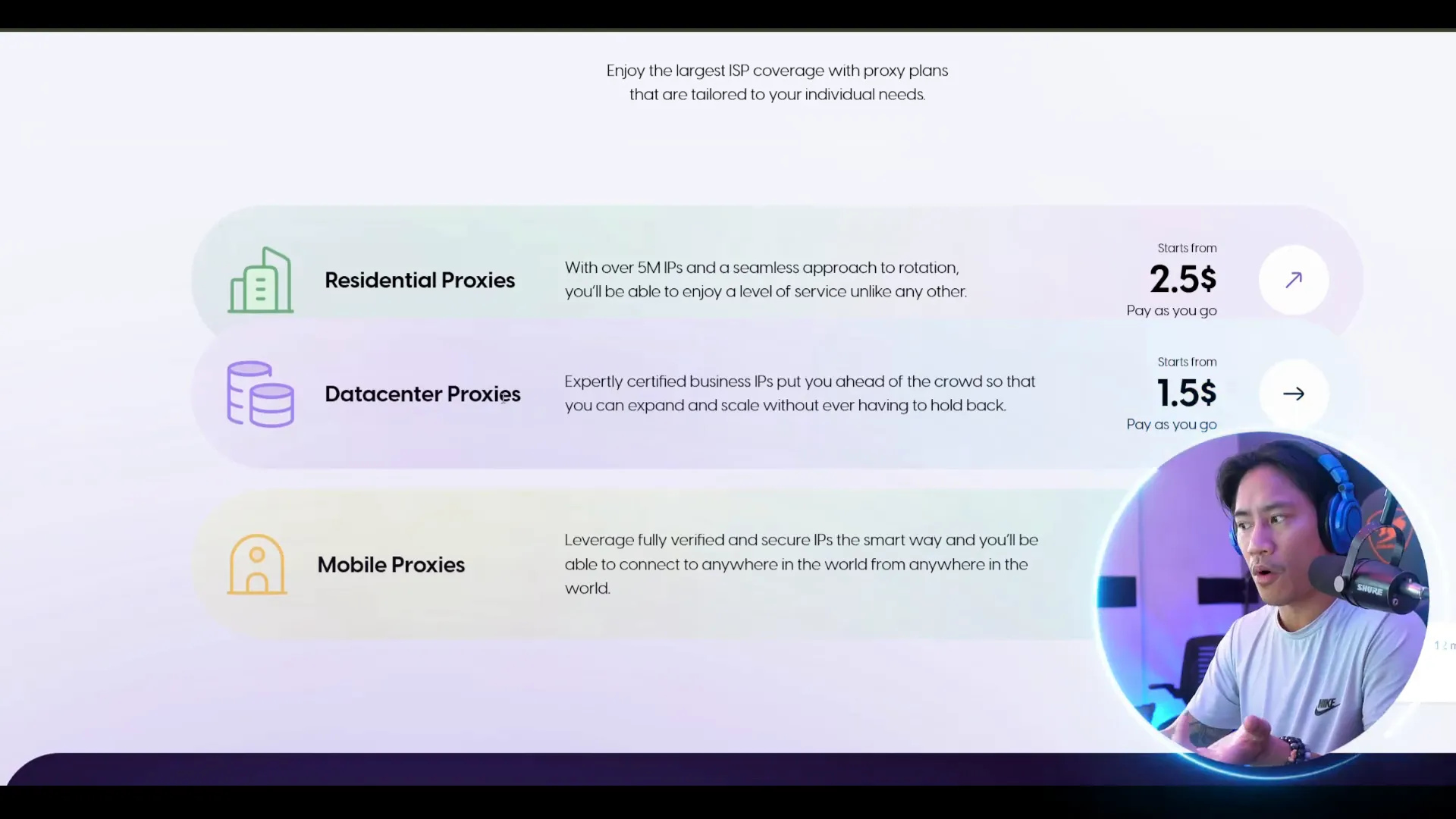Mar 30, 2025
Residential Proxies vs ISP Proxies: Choosing the Right Fit for Your Needs
Navigating the online world requires a thorough understanding of the key differences between Residential IP rotation and ISP proxies. Let's examine the factors that make these two types of proxies different and how they can help you efficiently.
What are ISP Proxies?
ISP proxies are a mixed type, which use the Internet Service Provider's IP address but are located in the data center. This setup allows them to simulate residential IPs while providing better speed and stability. They are most suitable for activities that require speed, for example:
- High-Volume Web Scraping: Quickly gather data from websites with moderate security.
- E-Commerce Monitoring: Efficiently track product availability and pricing changes.
- SEO Tools: Perform keyword rank checking and competitive analysis with low latency.
- Content Streaming: Bypass geo-restrictions and enjoy uninterrupted streaming.
What are Residential Proxies?
Residential proxies, in contrast, are real IPs that are sourced from genuine residential users. This very reason is why they are a credible and an anonymous proxy advertising the service which makes them especially useful for:
- Bypassing IP Bans: Essential for accessing high-security websites.
- Market Research: Collect unbiased data while appearing as a local user.
- Ad Verification: Ensure ads are displayed correctly in regions with strict anti-fraud regulations.
- Account Management: Avoid detection when managing multiple accounts.
Comparing the Two: ISP vs Residential Proxies
Recognizing the differences amid these two types of proxies will assist you in selecting the most suitable one for your particular tasks:
Speed and Reliability
Issues with ISP proxies because they are data center-based and serve less traffic, they are often the best option for data-heavy jobs. On the other hand, residential proxies could deliver lower performance because they are dependent on user home networks.
Anonymity and Authenticity
The proxies which are residential are the replicas of the user's IP. Thus they are almost impossible to find and block because they use proxies of real people. ISP proxies, look like real ones but they may also have problems with advanced anti-bot systems.
Cost and Accessibility
ISP proxies are generally costlier as they offer exceptional high-performance features and reliable service. Residential proxies, although they are often more affordable, might need a more significant number of them to slow down if not managed with IP rotation.
Proxy4u: Your Go-To Proxy Provider
If you're looking for a trusted provider, Proxy4u stands out with its range of services, including rotating residential proxies, mobile proxies, and data center proxies. Their tailored plans start as low as $2.50, allowing you to choose based on your specific needs.

Final Thoughts: Making an Informed Choice
Ultimately, the decision on whether to use ISP or residential proxies is purely based on your individual requirements. ISP proxies may be the most suitable option if speed and volume are of utmost importance. Conversely, should identity verification and anonymity be paramount in your projects, residential proxies are the best choice for you.idhean Edinbur SMC By entails you understanding these differences that should help you make fair and right decisions that will be a711711oithnbsp;align with nbsp;your goals.
Ready to explore the world of proxies? Don't hesitate to check out Proxy4u for tailored solutions that fit your needs!
Join Proxy4U Now!
🌐 Access the internet in a secure and fast manner underneath the Proxy4U tunnel! 🚀🔒
Join Now